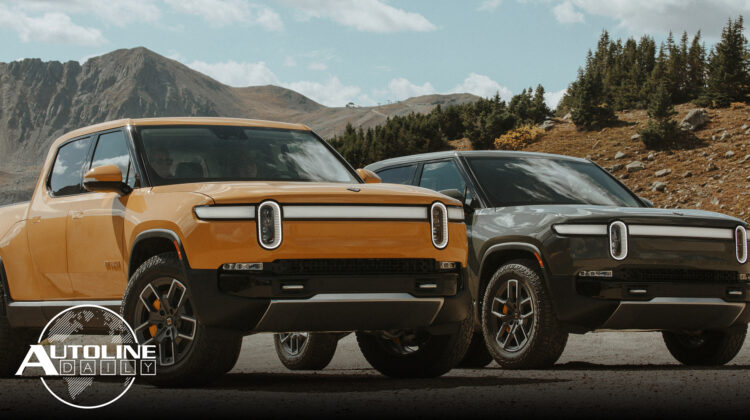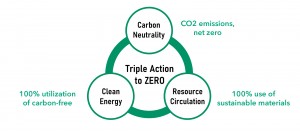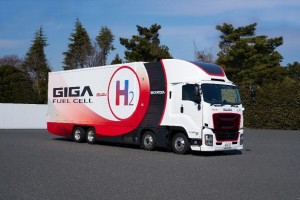
Listen to “AD #3567 – George Soros Dumps Tesla, Rivian, Ford Stock; Used EV Sales Booming; BMW Converts To Electric Ovens” on Spreaker.
Follow us on social media:
Runtime: 9:10
0:00 Auto Supplier Refuses Airbag Recall
1:04 George Soros Dumps Auto Stocks
1:46 Kia Launches EV Lease Program
3:05 Buttigieg Says Don’t Call It Autopilot
3:34 Used EV Sales Booming
4:39 No More RHD Tesla S & X
5:13 BMW Converts to Electric Ovens
5:58 Some Suppliers Safe from Vertical Integration
6:47 Honda Launches Carbon Neutral Plan
7:23 Honda-Isuzu FCEV For HD Trucks
Visit our sponsors to thank them for their support of Autoline Daily: Bridgestone, Intrepid Control Systems, and Schaeffler.
This is Autoline Daily, the show dedicated to enthusiasts of the global automotive industry.
AUTO SUPPLIER REFUSES AIRBAG RECALL
I don’t think we’ve ever seen an automotive supplier refuse to participate in a recall. But the airbag supplier ARC Automotive, which is based in Tennessee, told NHTSA it will not recall its airbags. NHTSA wants ARC to recall 67 million airbag inflators because it says they could explode and project shrapnel at occupants. It says two people have died and another seven were injured. But ARC is refusing to recall the inflators because it says there is no defect and that it’s just an isolated manufacturing issue. It also says that NHTSA only has the legal authority to force recalls for car companies and not suppliers. NHTSA’s next step is to schedule a public hearing and then it could take ARC to court.
GEORGE SOROS DUMPS AUTO STOCKS
Billionaire investor George Soros was all in on EVs until he wasn’t. Soros invested heavily in Tesla, Ford and Rivian. But according to the financial news outlet, The Street, he dumped all his Tesla stock and sold off 75% of his shares in Rivian, and sold all the bonds he held in Ford and then bought a million put options to short Ford stock. And he did all this by the end of the first quarter this year. But Soros also bought a million call options on Rivian, which means he thinks its stock will go up in the future.
KIA LAUNCHES EV LEASE PROGRAM
Germany, Japan and South Korea were visibly upset when the Inflation Reduction Act prevented their car companies from getting $7,500 sales subsidies when they exported EVs to the US. The IRA stipulated that EVs and their batteries had to be made in the US to qualify. So the Biden Administration, which needs the support of those allies in other global problem spots, gave them a loophole. It said that if those EVs were leased, that would count them as a commercial transaction, and they could qualify for the $7,500. So Kia just launched a new lease program, knocking $7,500 off the price of the car if customers lease an EV6 through Kia Finance. They have to put five grand down and pay $500 a month for 36 months. If they decide to buy the car, they’ll get $3,750 off the price. The lease program runs until July 5, but we think it’s likely it will get extended after that. In fact, we expect every automaker to offer lease programs until they build EVs in the US with batteries that qualify for the federal credit. Next year, Kia will start making the EV6 in the US.
BUTTIGIEG SAYS DON’T CALL IT AUTOPILOT
He seems a little late, but U.S. Transportation Secretary Pete Buttigieg says Tesla should not call Autopilot, Autopilot. He’s concerned at how the system is depicted because it’s not a fully autonomous system like the name implies. NHTSA is investigating Tesla because of dozens of crashes involving vehicles suspected of operating on Autopilot which hit parked emergency vehicles and semi-trailers.
USED EV SALES BOOMING
Will people actually buy used EVs? Why yes, they will. According to Cox Automotive, used EV retail sales through licensed dealers hit nearly 43,000 units in the first quarter of 2023, which is up nearly a third from a year ago. And at the same time, used EV prices fell 4% to an average of $43,400. The average new EV sells for nearly $60,000. But while used EV sales were up strong, they still only accounted for 1% of all used vehicle transactions. However, as more EVs enter the market, Cox expects sales to keep growing.
NO MORE RHD TESLA S & X
Tesla is killing off right-hand drive versions of the Model S and X. It’s no longer taking orders in places like Japan, Australia, Singapore, and Thailand. Tesla also sent an email to people with existing orders and said they could either get a full refund or get a left-hand drive version instead. Tesla doesn’t sell a lot of Ss and Xs, it only delivered about 10,700 globally in the first quarter. So we think there wasn’t enough demand to justify making the right hand steer versions.
BMW CONVERTS TO ELECTRIC OVENS
There’s a lot of controversy about the EPA wanting households to convert from gas stoves to electric ones to reduce CO2 emissions. But BMW just spent big on a new electric oven for heat treating gears. Instead of using 33 gas-powered flame heaters to bake things like gears for EV transmissions up to 900 degrees Celsius, it uses the same number of electric heating elements to do the same thing. By using electricity instead of gas, BMW will eliminate up to 300 tons of CO2 per year. The new furnace cost about 7 million euros, but it has a service life of 40 years and can heat treat about a million gears a year.
SOME SUPPLIERS SAFE FROM VERTICAL INTEGRATION
Suppliers were going to be in big trouble during this EV transition, so the thinking went. The belief was that legacy automakers would copy Tesla and start vertically integrating to pocket the profits that the suppliers make. But that’s not exactly happening. Automotive News reports that automakers are actually giving suppliers more control over certain commodities, like seats. That’s because automakers have to concentrate their resources on developing software defined cars, new electronic architectures and data management. Meanwhile, suppliers have thousands of engineers to concentrate on what they make best, so automakers are still relying on that expertise rather than bringing it in-house.
HONDA LAUNCHES CARBON NEUTRAL PLAN
Honda is jumping onto the carbon neutrality bandwagon. It’s officially rolling out its Triple Zero plan, which includes making sure all Honda’s products and corporate activities don’t have an overall negative impact on the environment; that the company creates a material loop through recycling; and that it produces more products that run on clean energy, like electricity and hydrogen. Honda will come out with a fuel cell version of the CR-V next year and it’s making fuel cell power generation stations, which both utilize the system it developed with GM.
HONDA-ISUZU FCEV FOR HD TRUCKS
… And it announced plans to start real-world tests of a heavy-duty fuel cell truck with Isuzu. The two actually started research in hydrogen-powered heavy trucks in 2020, but say they’ll finally get to on-road tests sometime before the end of March next year. The initial agreement said they would leverage Honda’s fuel cell know-how, so it will also likely use the fuel cell system developed with GM. After testing Isuzu plans to introduce a hydrogen-powered truck to the market in 2027.
But that brings us to the end of today’s show. Thanks for tuning in.
Thanks to our partner for embedding Autoline Daily on its website: WardsAuto.com
Seamus and Sean McElroy cover the latest news in the automotive industry for Autoline Daily.








